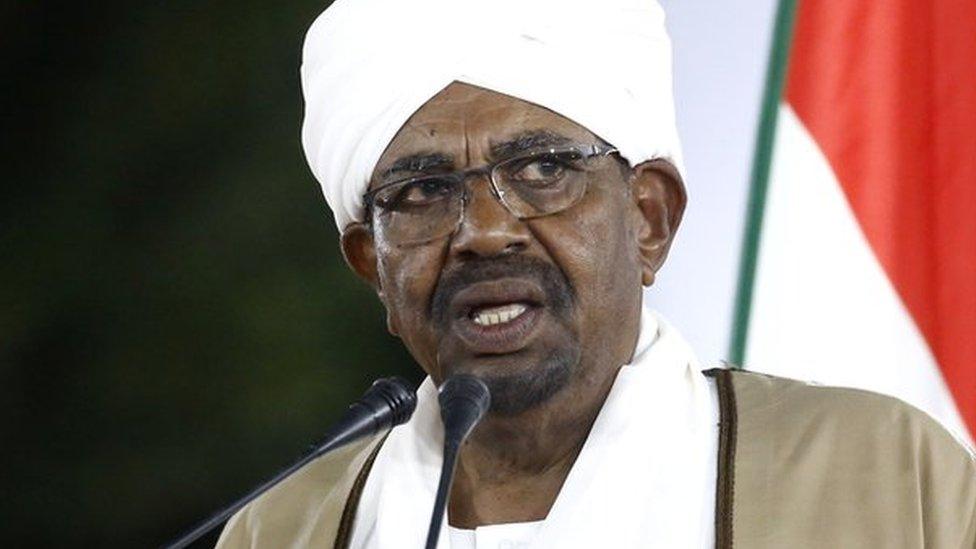Sudan: Protesters converge on army headquarters in Khartoum
- Published
Thousands rally in the capital, Khartoum
Thousands of demonstrators across Sudan have taken part in what appears to be the biggest series of rallies against President Omar al-Bashir since protests began in December.
In Khartoum, demonstrators reached the army headquarters for the first time. The presidential compound is nearby.
Security forces used tear gas and made several arrests.
The rallies mark the 34th anniversary of the coup that overthrew the regime of former President Jaafar Nimeiri.
So far, the army has not intervened in the protests.
Demonstrators remained outside the compound in the evening after authorities pulled back, as organisers reportedly called on protesters to hold a sit-in to keep up the pressure.
Some reportedly vowed to stay until President Bashir resigned.
Sudan's information minister meanwhile reaffirmed the government's plan to resolve the crisis through talks and praised the security forces.
Police told the state news service Suna that one civilian - who protest organisers reportedly said was a medic - had died in Khartoum's sister city Omdurman.
Civilians and officers were also reportedly wounded.
Why are people protesting?
Journalist Mohamed Ali Fazari, who was at the scene in Khartoum, said protesters were urging the army to side with the people against the government.
The crowd chanted "freedom, freedom, justice - one people one army", he told BBC Focus on Africa radio.
The protests were originally sparked by a hike in the cost of living but are now calling for the president, who has been in power for nearly 30 years, to step down.
Sudan's economy has long been strained since the US imposed sanctions more than 20 years ago, accusing Khartoum of sponsoring terror groups.
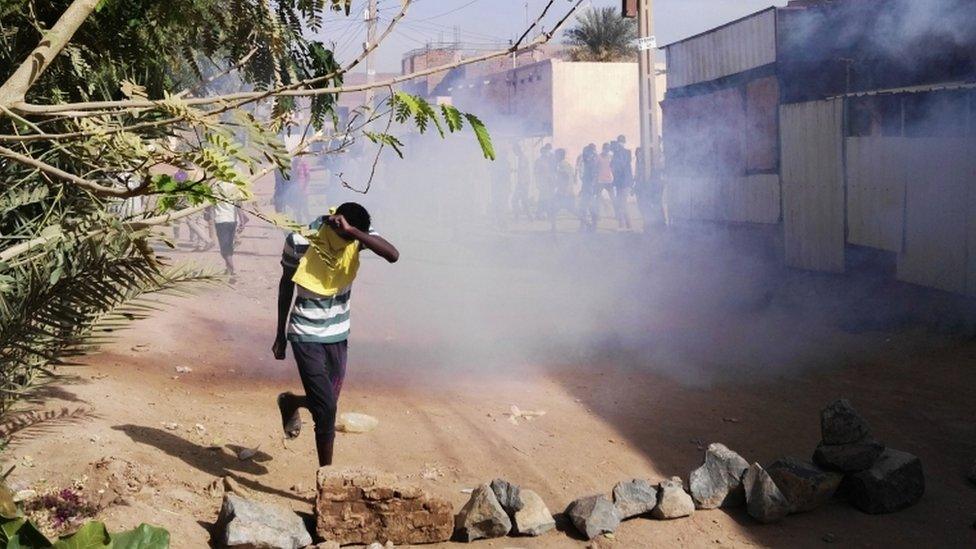
Authorities have used tear gas to try to disperse the protesters
In December last year, the Sudanese government announced the price of fuel and bread would rise.
In the year leading up to this, inflation had risen while the Sudanese pound fell rapidly in value.
The announcement of the price rises triggered protests, which evolved into calls for President Bashir to step down.
His rule has been blighted with accusations of human rights abuses. In 2009 and 2010, the International Criminal Court (ICC) charged him with counts of genocide, war crimes and crimes against humanity. A warrant for his arrest has been issued.
Who are the demonstrators?
The Sudanese Professionals Association (SPA) - a collaboration of health workers and lawyers - has been organising the protests.
Doctors have emerged as a leading force and as a result are being targeted by the authorities.
It is estimated that up two thirds of the protesters are women, who say they are demonstrating against Sudan's sexist and patriarchal society.
Sudan protests: 'No amount of beating will make us stop'
How has the president responded?
In February, it looked like he might give in to protests and step down, but instead Mr Bashir declared a state of national emergency.
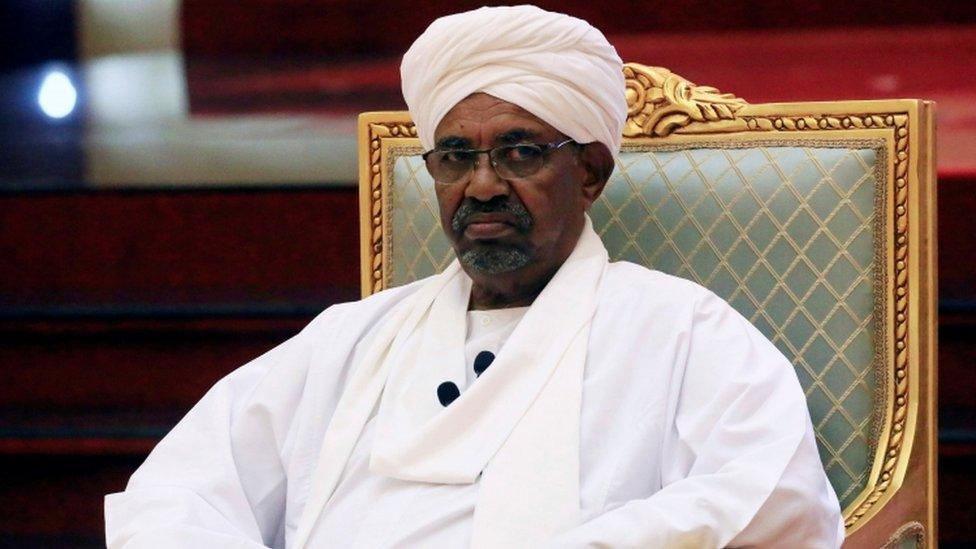
President Bashir spoke to the National Dialogue Committee at his palace on 5 April
On the streets, security has been heavy, with tear gas used indiscriminately and reports of violence commonplace.
Sudan protests: People flee gunshots in deadly protest
Sudanese authorities have been accused of arresting prominent activists and targeting medics, which the National Intelligence Security Service has denied.
Authorities say 31 people have died in protest-related violence so far, but Human Rights Watch says the figure is more like 51.
The pressure group Physicians for Human Rights says it has evidence of killing, persecution and torture of peaceful protesters and the medics caring for them.
- Published18 January 2019
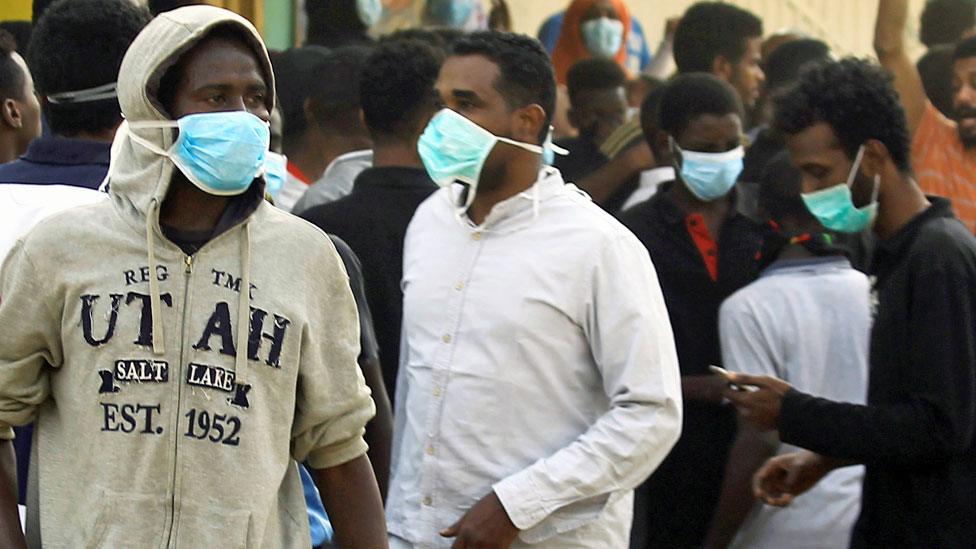
- Published28 December 2018
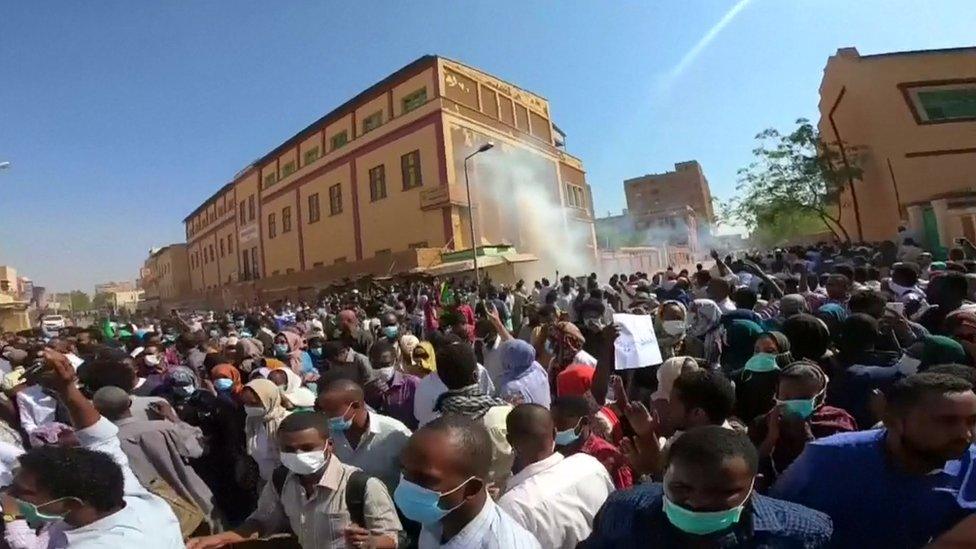
- Published24 January 2019
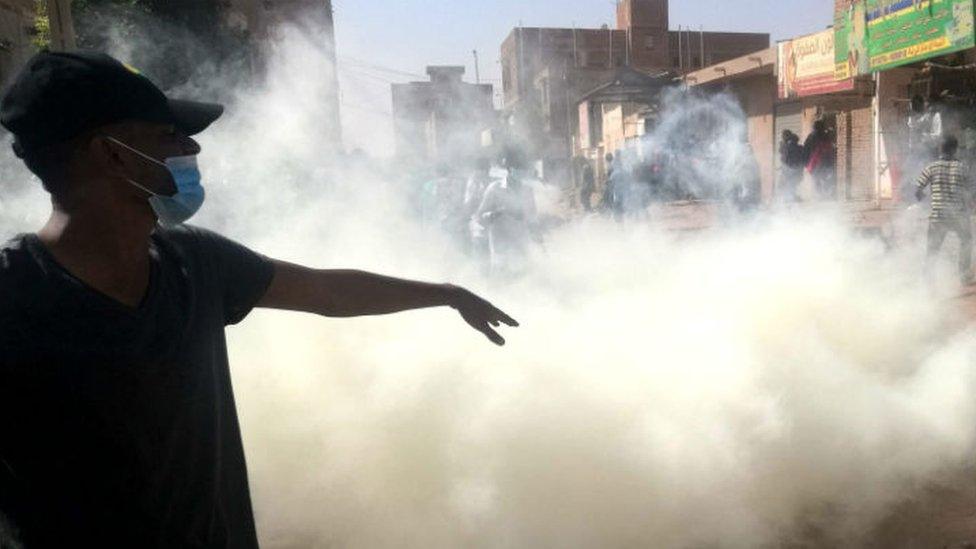
- Published1 April 2019
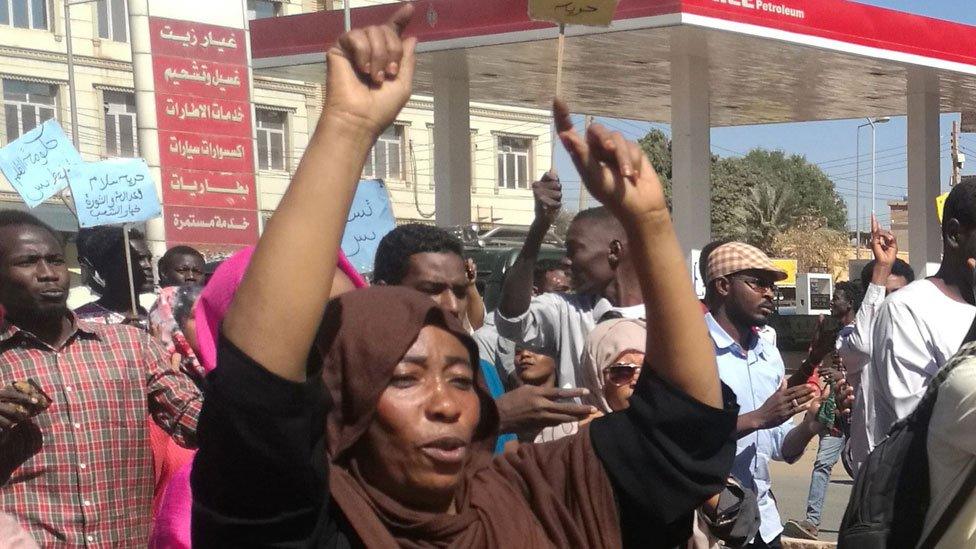
- Published23 February 2019
